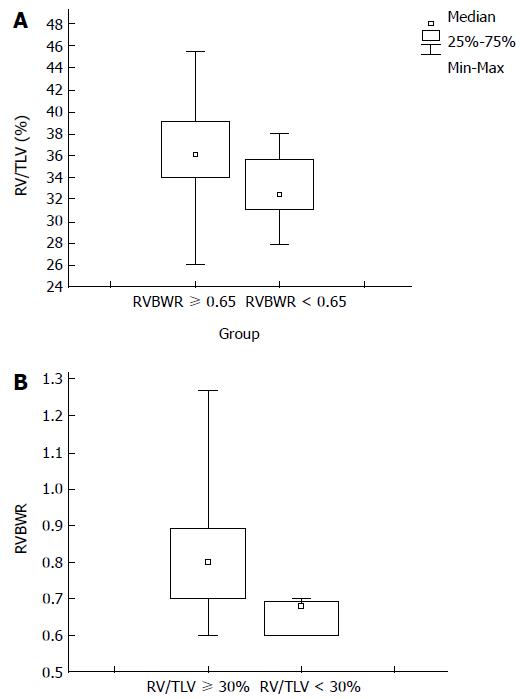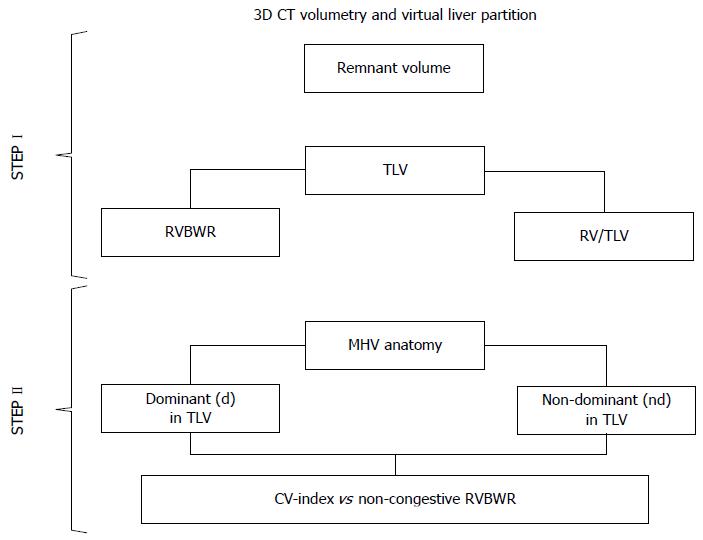Copyright
©The Author(s) 2015.
World J Gastroenterol. May 21, 2015; 21(19): 6008-6017
Published online May 21, 2015. doi: 10.3748/wjg.v21.i19.6008
Published online May 21, 2015. doi: 10.3748/wjg.v21.i19.6008
Figure 1 Correlation between remnant-volume-(donor) body-weight ratio (< 0.
65 vs≥ 0.65) and remnant volume percentage of total liver volume in left remnants of 71 right graft donors (A) and correlation between remnant volume percentage of total liver volume (< 30% vs≥ 30%) and remnant-volume-(donor) body-weight ratio in the left remnants of 71 right graft donors (B). RV/TLV: Remnant volume percentage of total liver volume; RVBWR: Remnant-volume-(donor) body-weight ratio.
Figure 2 Stepwise 3D-computed tomography volumetry and virtual liver partition assessing congestive- and non-congestive (remnant) volumes.
CV-index: Congestive volume percentage of remnant liver volume; 3-D: Three-dimensional; d: Dominant; MHV: Middle hepatic vein; nd: Non-dominant; RV/TLV: Remnant volume percentage of total liver volume; RVBWR: Remnant-volume-(donor) body-weight ratio; non-congestive-RVBWR: Safely LHV drained remnant-volume-body-weight ratio; TLV: Total liver volume.
- Citation: Radtke A, Sgourakis G, Molmenti EP, Beckebaum S, Cicinnati VR, Schmidt H, Peitgen HO, Broelsch CE, Malagó M, Schroeder T. Risk of venous congestion in live donors of extended right liver graft. World J Gastroenterol 2015; 21(19): 6008-6017
- URL: https://www.wjgnet.com/1007-9327/full/v21/i19/6008.htm
- DOI: https://dx.doi.org/10.3748/wjg.v21.i19.6008










